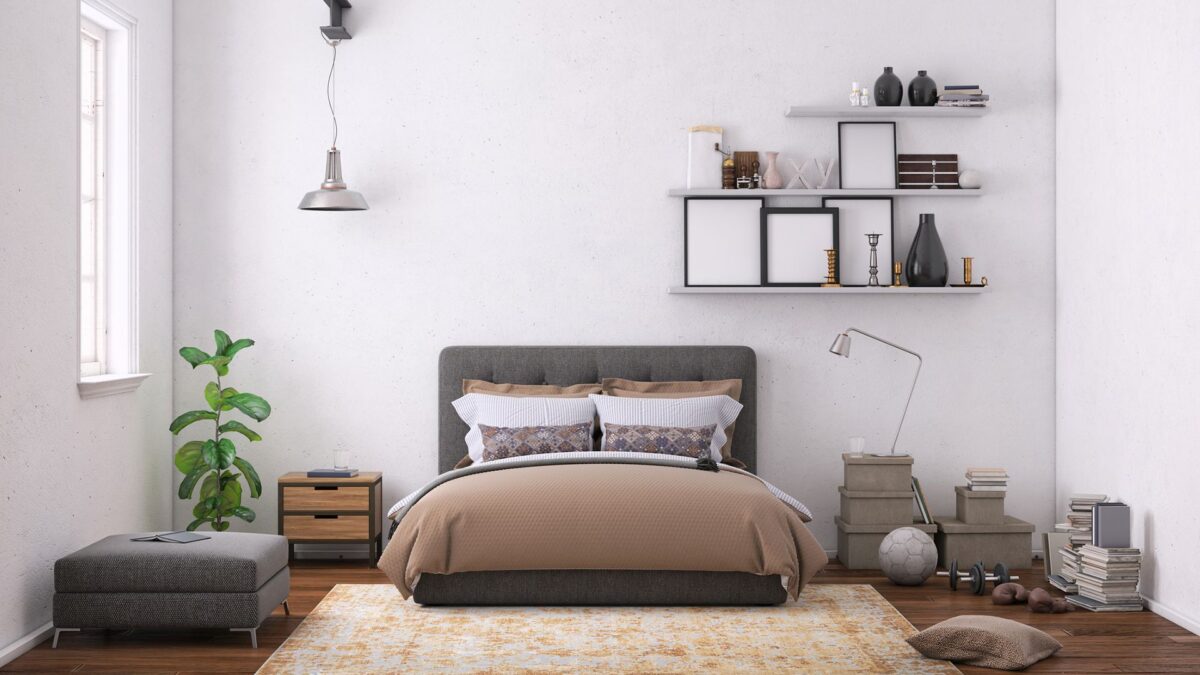In a world that often prioritizes productivity and constant engagement, the importance of a well-designed sleep sanctuary cannot be overstated. Understanding the intertwining aspects of our biology and psychology reveals how quality sleep significantly impacts our mental health and overall well-being. As we dive deeper into the science and soul of better sleep, we will explore essential elements that create a restful environment and share mindful techniques to enhance those precious hours of rest. Ultimately, cultivating a peaceful haven for sleep transforms not just our nights but also enriches our days.
Understanding Sleep: Why It Matters
Understanding sleep is crucial for achieving overall well-being. Sleep serves as a fundamental pillar of our health, directly impacting both our physical and mental states. When we prioritize creating a sleep sanctuary, we lay the groundwork for a restorative environment that enhances our sleep quality.
Here’s why sleep matters:
- Physical Health: Sleep plays a vital role in repairing tissues, boosting the immune system, and regulating hormones. Lack of sleep can lead to serious health issues, including obesity, heart disease, and diabetes.
- Mental Clarity: Quality sleep promotes cognitive functions such as memory consolidation and problem-solving abilities. A well-rested mind enhances productivity and creativity.
- Emotional Balance: Sleep significantly impacts our mood and emotional resilience. Insufficient rest often leads to increased stress and anxiety levels, hindering our ability to face daily challenges.
- Long-term Effects: Consistently poor sleep can contribute to chronic conditions, lower life expectancy, and diminished quality of life. By fostering a sleep sanctuary, you nurture a sustainable sleeping habit that counters these risks.
In summary, understanding the importance of sleep empowers us to take actionable steps in enhancing our nightly rest. Cultivating your very own sleep sanctuary not only provides a space for tranquility but also sets the stage for holistic health benefits. Prioritize sleep, and watch the transformation unfold!

The Biology of Sleep: How Our Bodies Recharge
Understanding the biology of sleep unveils the fascinating ways our bodies repair and rejuvenate. During sleep, a complex interplay of processes unfolds, vital for our overall health and well-being.
Firstly, sleep occurs in cycles, alternating between non-REM and REM stages:
- Non-REM Sleep: This phase involves three stages, beginning with light sleep and transitioning into deep sleep, where your body undergoes essential repairs. Key functions include:
- Cellular Repair: Tissue growth and repair occur, strengthening the immune system.
- Memory Consolidation: Information you learned during the day transfers from short-term to long-term memory.
- REM Sleep: This stage, often associated with dreaming, plays a crucial role in emotional regulation and brain function. Benefits include:
- Enhanced Creativity: Brain activity during REM can spark innovative ideas.
- Mood Stabilization: Quality REM sleep deepens emotional resilience.
Moreover, neurotransmitters like melatonin and cortisol regulate sleep-wake cycles. Melatonin, in particular, promotes a tranquil environment conducive to establishing your sleep sanctuary.
In summary, optimal sleep serves as the body’s natural reboot mechanism, enhancing everything from physical recovery to mental clarity. Thus, prioritizing a sleep sanctuary—free from disturbances and equipped with essential elements—helps facilitate these vital biological processes, paving the way for rejuvenating rest each night.
The Psychology of Sleep: Impact on Mental Health
Understanding the connection between sleep and mental health is crucial for creating a sleep sanctuary that nurtures both mind and body. Quality sleep significantly influences emotional well-being, stress levels, and cognitive function. Here are some pivotal points to consider:
- Mood Regulation: A restful night allows our brains to regulate emotions better. Lack of sleep often leads to heightened anxiety and irritability, disrupting our ability to cope with daily stressors.
- Cognitive Functioning: Sleep plays a vital role in memory consolidation and decision-making skills. Without adequate rest, we may find ourselves foggy, which can impact productivity and relationships.
- Mental Health Disorders: Research indicates that chronic sleep deprivation increases the risk of developing conditions such as depression and anxiety. A well-curated sleep sanctuary can mitigate these risks by fostering restorative sleep.
Impacts of Sleep Deprivation on Mental Health:
| Impact | Symptoms |
|---|---|
| Mood Swings | Irritability, increased stress |
| Cognitive Decline | Poor attention span, memory issues |
| Increased Anxiety | Overthinking, panic attacks |
| Depression Symptoms | Feelings of sadness, hopelessness |
Creating your sleep sanctuary is essential for maintaining emotional balance and mental clarity. By prioritizing sleep, you not only improve your mood but also enhance your overall mental health, creating a harmonious cycle of well-being and rejuvenation. Remember, a peaceful sleep sanctuary sets the stage for a healthier mind.
Creating Your Sleep Sanctuary: Essential Elements
Transforming your bedroom into a sleep sanctuary is vital for achieving restorative rest. By focusing on key elements, you can create an environment that promotes relaxation and tranquility. Here are the essential components to consider:
1. Comfortable Bedding
- Mattress: Choose a mattress that suits your sleeping style. Options include memory foam, innerspring, and hybrid mattresses.
- Pillows: Select pillows that support your neck and head, ensuring alignment with your spine.
- Bedding Materials: Opt for breathable, soft fabrics like cotton or bamboo to enhance comfort.
2. Lighting
- Dimmers: Install dimmable lights to gradually lower light levels as bedtime approaches.
- Blackout Curtains: Block external light sources to promote deeper sleep.
3. Noise Control
- Sound Machines: Consider white noise machines or calming nature sounds to drown out disturbances.
- Earplugs: Use high-quality earplugs if external noise remains an issue.
4. Temperature Regulation
- Optimal Temperature: Maintain a cool room temperature (around 60-67°F or 16-19°C) for the best sleep conditions.
- Fans or HVAC: Utilize fans or air conditioning to regulate heat effectively.
5. Personal Touch
- Decor: Use calming colors and soothing artwork to create a peaceful ambiance.
- Plants: Incorporate low-maintenance plants to enhance air quality and promote relaxation.
By focusing on these essential elements, you can cultivate a sleep sanctuary that nurtures both body and mind, leading to more restful nights and rejuvenated days.
If you want to buy books about Sleep Sanctuary, please click here to buy from Amazon.

The Role of Environment: Light, Noise, and Temperature
Creating a true sleep sanctuary goes beyond just a cozy bed; the environment plays a crucial role in promoting restorative sleep. Let’s explore how light, noise, and temperature impact your sleep quality.
Light
- Brightness can significantly affect your body’s circadian rhythms.
- Tips:
- Use blackout curtains to block out external light.
- Consider dimming lights an hour before bed to signal that it’s time to wind down.
Noise
- Excessive noise can disrupt sleep cycles, leading to fragmented rest.
- Tips:
- Use white noise machines or gentle sound apps to mask disruptive sounds.
- Keep your sleep sanctuary quiet—consider earplugs if necessary.
Temperature
- An overly warm or cold room can hinder your ability to fall and stay asleep.
- Ideal Conditions:
- Aim for a room temperature between 60-67°F (15-19°C) for optimal sleep.
- Use breathable bedding materials, as they help regulate your body temperature.
| Environmental Factor | Impact on Sleep Quality | Solutions |
|---|---|---|
| Light | Disrupts circadian rhythms | Blackout curtains, dim lights |
| Noise | Causes sleep fragmentation | White noise machines, earplugs |
| Temperature | Affects falling/staying asleep | Control room temp, breathable bedding |
By optimizing your sleeping environment, you can transform your bedroom into a true sleep sanctuary, paving the way for deeper, more restful sleep. Prioritize these aspects, and experience the profound benefits of a harmonious sleep setting.
Mindfulness and Sleep: Techniques for Better Rest
Creating a sleep sanctuary isn’t solely about your physical space; it also involves nurturing a calm mind. Mindfulness can play a significant role in promoting restful sleep. By practicing techniques that center your thoughts and relieve stress, you can enhance your nighttime experience.
Here are several effective mindfulness techniques to incorporate into your bedtime routine:
- Meditation: Spend a few minutes focusing on your breath or visualizing peaceful scenes. This practice helps to quiet your racing thoughts and centers your mind.
- Progressive Muscle Relaxation: Tense and then relax each muscle group in your body, starting from your toes and working up to your head. This technique encourages physical relaxation, which is essential for a true sleep sanctuary.
- Gratitude Journaling: Before bed, jot down three things you’re grateful for. This positive reflection can shift your mindset, making it easier to drift off into a peaceful sleep.
- Guided Imagery: Listen to recordings that guide you through calming visualizations, promoting relaxation and reducing anxiety.
Implementing these practices not only enriches your sleep sanctuary but also enhances overall well-being. Indeed, by prioritizing mindfulness, you can create a deeper connection to your restful space, allowing for serenity and rejuvenation in your night’s sleep.
Nutrition and Sleep: What to Eat for Better Zzzs
Creating a sleep sanctuary extends beyond your environment; it also encompasses what you fuel your body with. Nutrition plays a pivotal role in influencing sleep quality. Consider incorporating the following foods into your diet to promote better Zzzs:
- Complex Carbohydrates: Whole grains, oats, and brown rice can facilitate the release of serotonin, a hormone that helps regulate sleep.
- Lean Proteins: Foods like turkey, chicken, and fish contain tryptophan, an amino acid that promotes melatonin production.
- Fruits and Vegetables: Bananas and cherries are excellent choices; bananas contain magnesium which aids relaxation, while cherries are a natural source of melatonin.
- Healthy Fats: Sources like avocados and walnuts provide omega-3 fatty acids, which may enhance sleep quality.
Foods to Avoid Before Bed
It’s just as important to recognize what to refrain from eating:
- Caffeine: Found in coffee, tea, and chocolate, caffeine can disrupt your natural sleep cycle.
- Heavy Spicy Foods: These can lead to discomfort and indigestion, inhibiting your ability to fall asleep.
- Alcohol: Although it may initially make you drowsy, alcohol often leads to disturbed sleep patterns.
Ultimately, nourishing your body with the right foods creates a sleep sanctuary that enhances both quantity and quality of rest. By making mindful dietary choices, you pave the way for a more restorative night’s sleep, allowing you to wake refreshed and revitalized.

The Influence of Technology: Balancing Screens and Slumber
In today’s digital age, technology plays a significant role in our lives, often encroaching on our sleep. While gadgets like smartphones and tablets offer endless entertainment, they can disrupt our sleep sanctuary in various ways. Here’s how to achieve harmony between technology use and restful nights:
Negative Effects of Technology on Sleep
- Blue Light Exposure: Devices emit blue light, which can interfere with melatonin production—our natural sleep hormone. Reducing screen time before bed can help signal your brain that it’s time to wind down.
- Mental Stimulation: Engaging with stimulating content can heighten alertness, making it difficult to transition into sleep. It’s essential to choose calming or neutral activities in the evenings.
Tips for Managing Technology Use
- Set Boundaries: Aim to turn off screens at least an hour before bedtime. This allows your mind to relax and prepare for a night of restorative sleep.
- Create a Tech-Free Zone: Designate your sleep sanctuary as a device-free zone. This promotes a peaceful atmosphere conducive to relaxation.
- Use Sleep Modes: Most devices now come equipped with “night shift” settings that reduce blue light exposure. Enabling these features can minimize disruptions.
By thoughtfully managing your technology usage, you preserve the sanctity of your sleep sanctuary, ensuring restful nights and revitalized days. Remember, a balanced approach can lead to better quality sleep and overall well-being.
Establishing a Sleep Routine: Habits for Success
Creating a consistent sleep routine is one of the most effective ways to transform your sleep sanctuary into a haven of rest. By establishing habits that signal your body it’s time to wind down, you can improve both the quality and quantity of your sleep. Here are some essential habits to incorporate into your nightly routine:
- Set a Consistent Sleep Schedule: Go to bed and wake up at the same time every day, even on weekends. This consistency reinforces your body’s natural sleep-wake cycle.
- Create a Relaxing Pre-Sleep Ritual: Engage in calming activities such as reading, taking a warm bath, or practicing meditation. These activities help your mind shift from the day’s stress to a peaceful state.
- Limit Screen Time: Reduce exposure to electronic devices at least one hour before bed. The blue light emitted by screens can interfere with melatonin production, which is crucial for sleep.
- Design Your Sleep Sanctuary: Ensure your bedroom promotes restful sleep. Consider factors like temperature, light levels, and noise. Aim for a cool, dark, and quiet environment.
- Mind Your Meals: Avoid heavy meals, caffeine, and alcohol close to bedtime. These can disrupt your ability to fall and stay asleep.
By consistently practicing these habits, you nurture your sleep sanctuary, fostering an environment conducive to deeper and more restorative slumber. Embrace the tranquility of a well-established sleep routine, and watch your sleep quality improve.
Exploring Alternative Practices: Herbal Remedies and Beyond
Creating a sleep sanctuary goes beyond just a comfortable bed and cozy blankets; it entails embracing holistic approaches that nurture the mind and body for restful slumber. Exploring alternative practices, particularly herbal remedies, can provide significant support in achieving better sleep.
Herbal Remedies for Better Sleep
- Chamomile: This gentle herb calms the nervous system and helps ease you into a tranquil state, perfect for bedtime.
- Valerian Root: Known for its sedative properties, it can significantly reduce the time it takes to fall asleep.
- Lavender: The soothing scent of lavender not only promotes relaxation but may also improve sleep quality when used as an essential oil or in sachets.
Additionally, consider the following practices to enhance your sleep sanctuary:
- Aromatherapy: Use essential oils such as bergamot or cedarwood to create a calming atmosphere.
- Meditation: Engaging in mindfulness practices before bed helps to quiet the mind, aligning with your efforts to foster a peaceful sleep sanctuary.
- Herbal Teas: Sipping on herbal teas like passionflower or lemon balm an hour before bedtime can further prepare your body for sleep.
Incorporating these alternative practices into your nightly routine can transform your space into a true sleep sanctuary, allowing for deeper rest and rejuvenation each night.

Embracing the Night: Finding Peace in the Darkness
Finding peace in the darkness is essential for transforming your bedroom into a true sleep sanctuary. Nighttime can often create a sense of anxiety for many. However, by embracing the night and cultivating a tranquil atmosphere, you can foster a deeper connection with your sleep.
Here are some thoughtful strategies to enhance your nighttime experience:
- Gentle Lighting: Use soft, dimmable lights or candles. This helps signal to your body that it’s time to wind down, promoting relaxation and readiness for sleep.
- Soothing Sounds: Incorporate white noise machines or calming music. These sounds can mask disturbances and create a more serene environment.
- Aromatherapy: Utilize calming scents such as lavender or chamomile. Diffusing essential oils in your sleep sanctuary can enhance relaxation and reduce stress before bedtime.
- Comfortable Textiles: Invest in soft bedding and comfortable pajamas. The tactile experience plays a significant role in signaling relaxation and comfort.
- Unplugging Devices: Establish a technology-free zone in your sleep sanctuary, allowing your mind to disconnect from the day’s stressors.
By intentionally creating a peaceful environment, you’ll encourage a mind and body ready for restorative sleep, ultimately reinforcing your sleep sanctuary. Embrace the night and let it guide you towards a haven of tranquility, where peace reigns supreme in the darkness.
Frequently Asked Questions
What are the key elements of creating a sleep sanctuary?
Creating a sleep sanctuary involves several pivotal elements that foster an atmosphere conducive to rest and relaxation. First, consider the environment; a dark, quiet, and cool room is essential for optimal sleep. Incorporate comfortable bedding and pillows, which support your preferred sleeping positions. Personal touches, such as calming scents from essential oils or soft lighting options, can further enhance tranquility. Finally, minimize electronic distractions; consider using blackout curtains and white noise machines to eliminate disturbances. Each of these components contributes significantly to the quality of your sleep experience.
How does sleep affect physical and mental health?
Sleep plays a critical role in both physical and mental health, serving as a cornerstone for overall well-being. Physically, restorative sleep aids in the body’s repair and recovery processes, supports immune function, and regulates hormones, which in turn helps manage weight. Mentally, quality sleep enhances cognitive functions such as memory, focus, and problem-solving abilities, while also regulating mood and emotional stability. Insufficient sleep is linked to increased risks of mental health issues, such as anxiety and depression, demonstrating just how vital it is to prioritize restorative sleep.
What are some scientifically-backed tips for better sleep?
To foster better sleep, several scientifically-backed strategies can be implemented. Establishing a consistent sleep schedule by going to bed and waking up at the same times each day enhances your body’s internal clock. Implementing a relaxing bedtime routine, such as reading or meditation, can signal your body that it’s time to wind down. Additionally, limiting caffeine and heavy meals several hours before bedtime can help improve sleep quality. Lastly, avoiding screens at least an hour before sleep can minimize disruptions from blue light, helping to prepare your mind for rest.
What are the consequences of poor sleep patterns?
Poor sleep patterns can lead to a cascade of negative consequences that affect several aspects of daily life. Physiologically, inadequate sleep can result in diminished cognitive function, increased fatigue, and impaired decision-making abilities. It can also weaken the immune system, making one more susceptible to illnesses. Psychologically, chronic sleep deprivation is associated with heightened anxiety, mood swings, and increased stress levels. Long-term ramifications may include significant health issues such as obesity, diabetes, cardiovascular diseases, and even mental health disorders, emphasizing the importance of adhering to healthy sleep habits.
How can mindfulness and meditation improve sleep quality?
Mindfulness and meditation have been shown to be effective tools for improving sleep quality by fostering relaxation and reducing anxiety. Practicing mindfulness encourages individuals to focus on the present moment, alleviating thoughts that may otherwise keep them awake. Meditation techniques, such as deep breathing and guided imagery, help to calm the mind and body, promoting a sense of inner peace. Incorporating these practices into your nightly routine can mitigate stress and prepare the body for restful sleep, ultimately contributing to a more restorative slumber.
